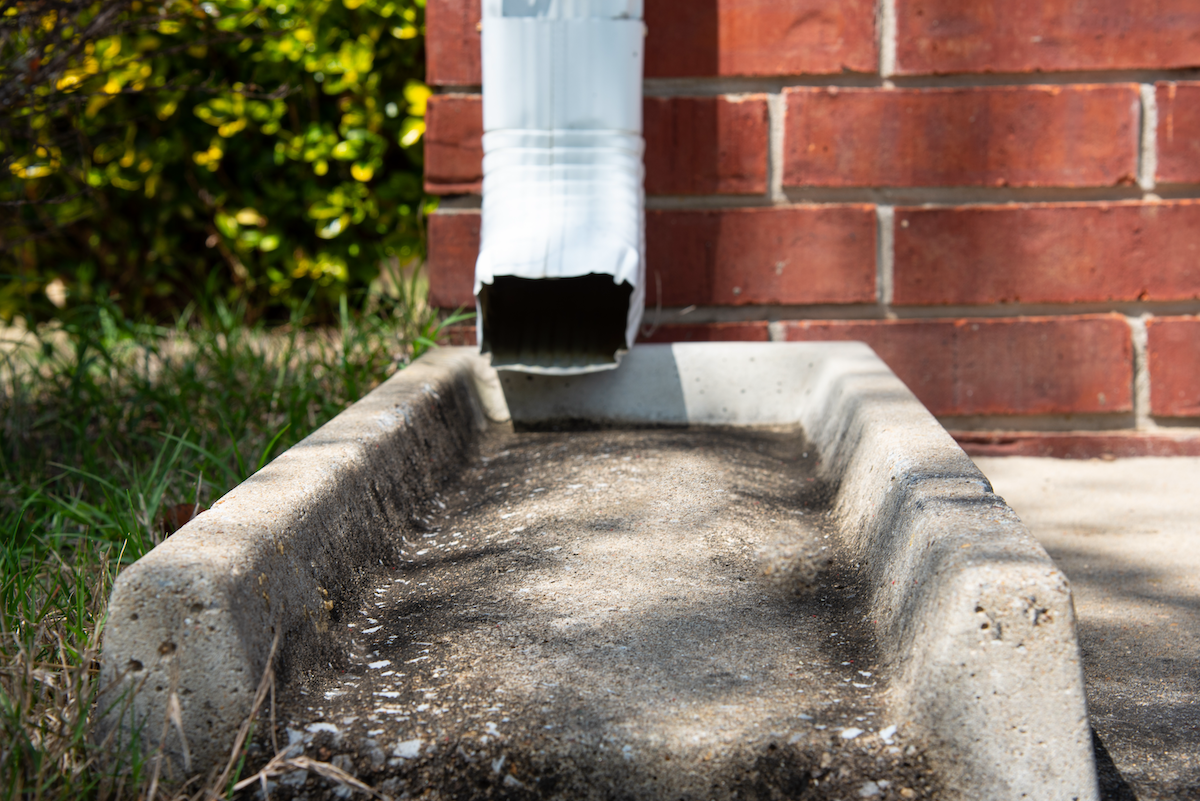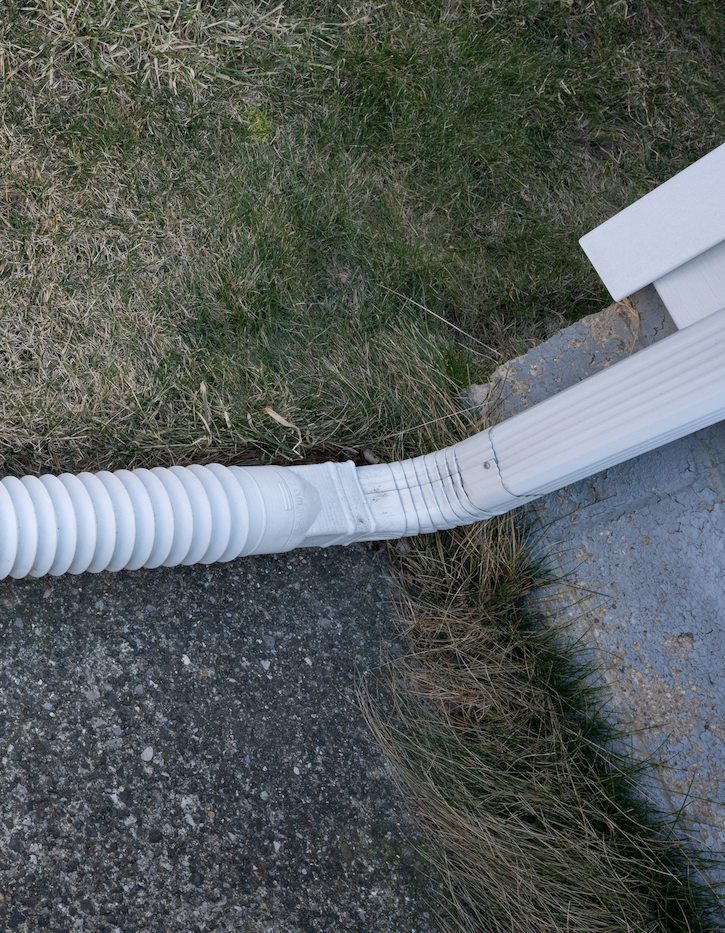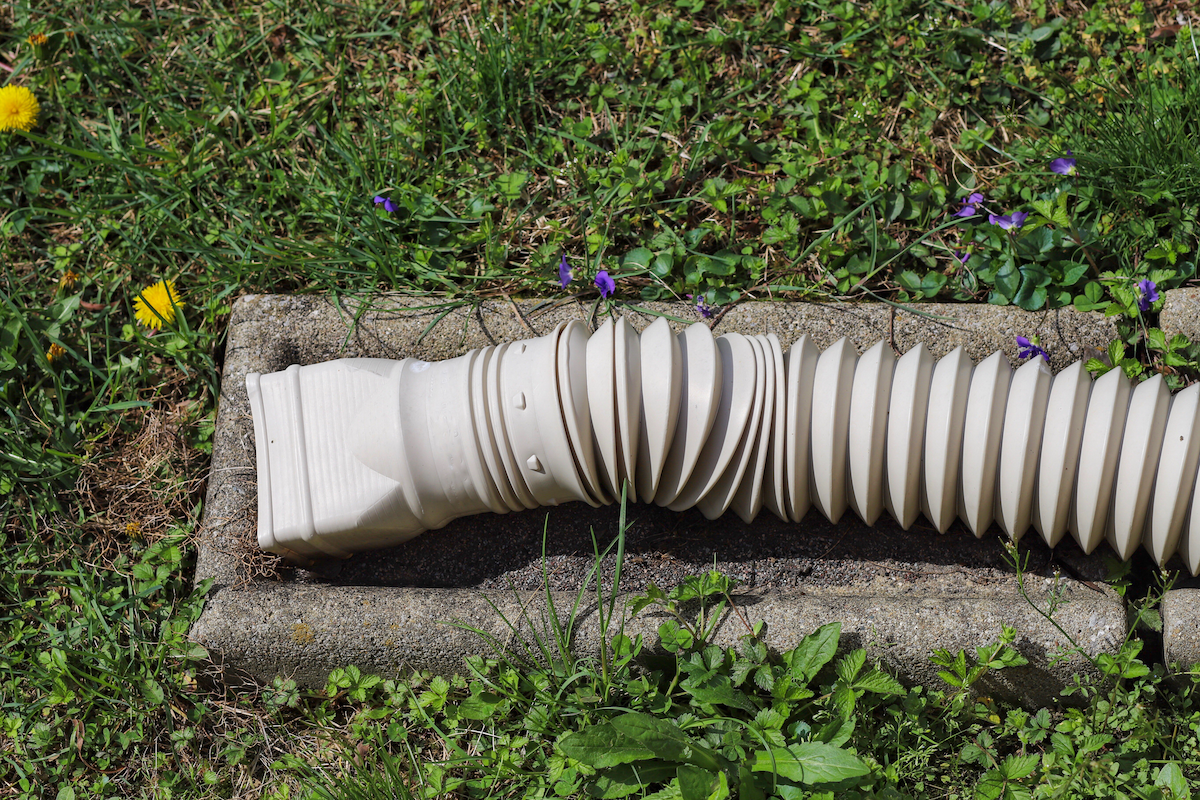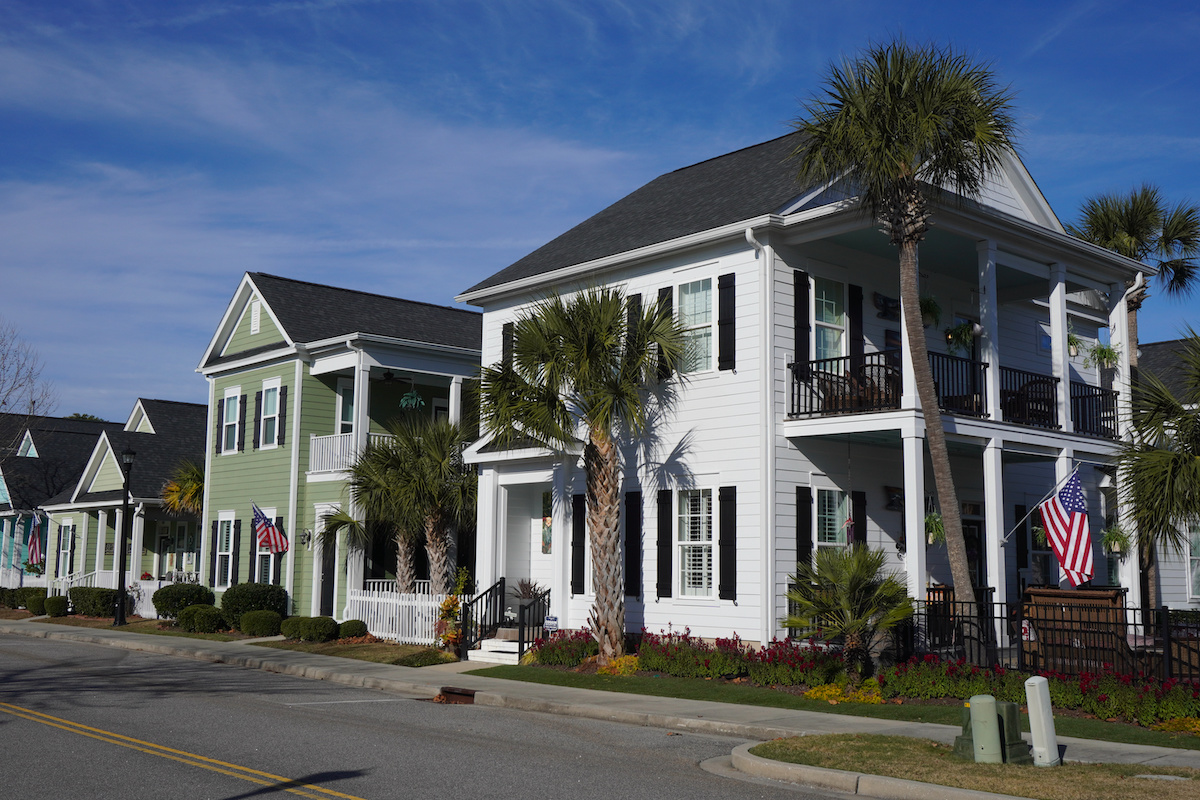Last Updated on January 19, 2023 by James Redding
As a homeowner, you’re no stranger to the importance of gutters in protecting your home from water damage. But, did you know that there’s another key player in safeguarding your home that you may not have heard of?
Enter: downspout extensions.
These often overlooked components are a vital part of your gutter system and play a crucial role in protecting your home and its foundation.
Let’s take a look at why having properly-installed downspouts (and downspout extensions) is so important.
What Are Downspouts?
If you’re like many new homeowners, you may be wondering “what are downspouts?” in the first place.
These components are a critical part of any residential or commercial gutter installation. They’re the pipes or tubes attached to the areas of your gutter system that direct water away from your roofline, then allow it to flow away from your siding, flower beds, windows, doors, and foundation—all areas that are vulnerable to water damage if water is allowed to accumulate near them.
Downspouts may not be the most glamorous part of your home, but they play a crucial role in protecting it from costly repairs. These pipes or tubes, attached to your gutter system, act like a water evacuation team for your roofline, flower beds, walls, windows, doors, and foundation.

They’re the unsung heroes of home protection, but sometimes they need a little extra help.
With a simple solution like downspout extensions, you can ensure that water is directed away from your home, and your unsung heroes can rest easy knowing they’ve done their job well.
The Solution: Downspout Extensions

The problem is that many downspouts don’t extend far enough away from the house on their own, allowing rainwater to pool near the foundation of the home, or splash back onto the building. This can cause soil erosion and other problems over time.
Downspout extensions allow rainwater to drain in a controlled manner instead of pooling around the foundation of your home or splashing back onto its walls. The extensions may be made from plastic/vinyl or metal tubes, and they may extend several feet away from the house so that water has somewhere to go other than toward it.
Some downspout extensions are flexible, which makes them easier to install and configure as needed. They may also feature additional components, such as splash blocks or underground drain pipes, for optimal performance.
What exactly are splash blocks?
Splash blocks are small blocks made of plastic or concrete that are placed at the base of the downspout extension. They act as a barrier, preventing water from spilling out and eroding the soil around your foundation. They also direct the water flow away from your home, ensuring that it is carried safely to a drainage area.
Benefits of Downspout Extensions
In the same way that gutter guards (or leaf guards) protect your gutter system from debris and buildup, downspout extensions can provide significant protection from water damage by controlling the flow of water and diverting it away from your home’s foundation.
This can help prevent soil erosion, water infiltration into your basement or crawlspace, and other costly problems. In addition, downspout extensions may be able to reduce the amount of standing water in your yard as well.
By properly installing these extensions, you can help prevent soil erosion and keep your home’s foundation dry and stable—two very important factors in preserving its structural integrity over time.
It can be deceptively tricky to install downspout extensions yourself—even for a DIYer—so if you’re not confident in your ability to install them correctly, it’s best to hire a professional gutter installation company to ensure that your system is properly configured, and the water flow is correctly diverted.
Conclusion
Downspouts are an integral part of any gutter system—but they often aren’t enough on their own. To ensure that your home remains safe from water damage, downspout extensions can help direct rainwater to drain properly, away from the foundation of your house, preventing pooling and erosion.
Water damage can wreak havoc on your home, but with downspout extensions, you can steer clear of costly repairs.

Don’t wait for water damage to strike—if you think you may need downspout extensions for your gutters, take preventative measures. A professional can help you assess and install the right components for your home. Properly functioning gutters and downspouts not only keep your home safe and dry, they also preserve its structural integrity for the long haul.
Regularly inspecting and maintaining your gutter system may seem tedious, but it’s a small price to pay for protecting your biggest investment—your home.
Take the time to ensure that your downspouts and extensions are doing their job, it could save you a world of trouble down the road.


